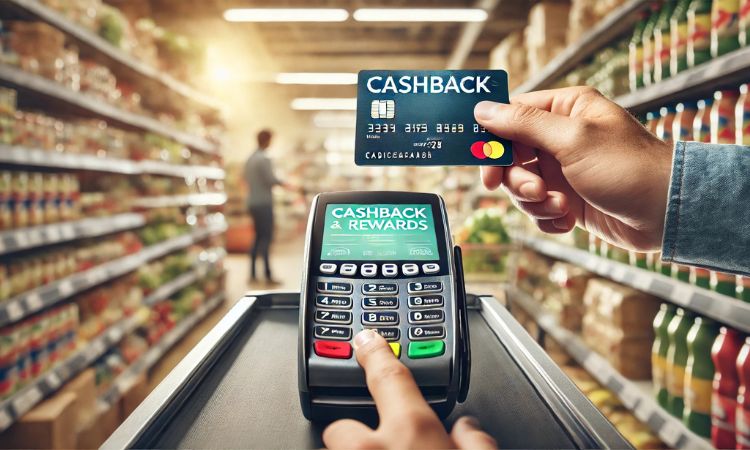Should I have multiple credit cards? This is a common question for many people managing their finances. Credit cards offer unmatched convenience, making transactions easier both online and offline.
Americans rank among the biggest credit card users in the world, with credit card proliferation in the U.S. being the highest globally. Many people wonder—should I have multiple credit cards to improve financial flexibility?
Most stores, healthcare facilities, and essential services accept credit card payments, making them an essential part of daily life. With the rise of online shopping and digital payments, the usage of credit cards has grown exponentially.
This widespread acceptance often makes people think—should I have multiple credit cards to maximize convenience? But does this mean you should have more than one credit card? Are there any drawbacks to owning multiple credit cards?
In this article, we will explore the strong reasons to have multiple credit cards, along with potential downsides, to help you make an informed decision.
Table of Contents
Credit Card Stats in the USA
Statistics from credit scoring agency Experian and other sources reveal an average American holds 3.9 credit cards. While some may hold a single credit card, some have as many as nine credit cards. However, the median figure hovers around three credit cards per adult. This raises an important question—should I have multiple credit cards like most Americans?
Here’re a breakup of credit card ownership in the USA by ethnicity:
- White Americans: 87 percent of white Americans hold at least one credit card.
- Asian Americans: 92 percent of Asian Americans have at least one credit card.
- Hispanic Americans: 74 percent of Hispanic Americans hold at least one credit card.
- Black Americans: 60 percent of Black Americans have at least one credit card.
These disparities can be attributed to various factors, including differences in income, access to banking services, and historical wealth gaps. Regardless of ethnicity, a key financial decision remains—should I have multiple credit cards to build a strong credit profile?
It is widely believed that Indian Americans, the community with the highest median household income of $152,341 per year as of January 2025, have the greatest average number of credit cards and the lowest default or delinquency rates compared to other ethnic groups residing in the country. Considering this data, should I have multiple credit cards to manage my finances better?
As of January 2025, the average credit card debt per adult is estimated at $3,680 with a delinquency rate of 30 days or more standing at a mere 3.23 percent, though banking and finance industry experts anticipate this would rise due to growing inflation. With rising debt concerns, many still ask—should I have multiple credit cards for financial security?
Should I Have Multiple Credit Cards? Strong Reasons to Consider
Since most Americans have more than one credit card, you might be wondering whether you too should get more. This question would primarily arise if you’re a young adult, wanting to create a superb credit score and have never owned credit cards before. So, should I have multiple credit cards to establish a solid financial future?
Therefore, read carefully. Owning a credit card, or in fact, more than one of these could help you in more than one way in your financial journey. If you’re debating, “Should I have multiple credit cards?” these benefits may help you decide.
Here’re some strong reasons to own more than one credit card.
Superb Credit Score

Having more credit cards could help develop a superb credit score. Yes, that’s right. Having a lot of credit but using only a small percentage and again, repaying on time without delays does a lot of good in building a credit score. And we’re all aware that a healthy credit score means easier loans and other finance such as home mortgages.
Having a superb credit score could also enable you to get loans on lower interest or Annual Percentage Rates and in some cases, help with Employee Background Screening where some employers need jobseekers to have a clear credit history. For those aiming for a high credit score, the question arises—should I have multiple credit cards to improve my creditworthiness?
Also Read:
- How to Prevent Credit Card Fraud: Simple Steps to Stay Safe
- Top 5 Ways to Restructure and Repay Your Credit Card Debt Quickly
Rewards & Cashback

In this era of inflation, most of us look for ways and means to save some money on our daily needs and other purchases. Credit cards make that possible. Nowadays, most credit cards come with automatic membership to loyalty programs that enable you to earn rewards on every spend.
Some credit cards also offer valuable cashback on daily needs such as groceries gasoline or medicine. A few credit cards provide discounts on air tickets while others even provide lower rates at certain medical facilities.
Having more than one credit card enables you to avail these benefits, albeit by meeting specific conditions. If rewards matter to you, you may ask—should I have multiple credit cards to maximize benefits?
Emergency Expenses

Nobody can predict when an emergency or an exigency will strike us personally or our household. The majority of emergencies have a financial component, meaning, it bring about unexpected expenditure, in most cases, on the higher side. Unless you’ve an emergency fund that’s loaded with at least six months of living expenses, meeting such demands on cash can be taxing.
In these cases, multiple credit cards could provide a superb buffer. You could counter the emergency and the excessive spending it entails using credit cards and later, repay minimum or settle the full bill, once finances return to normal. This makes people wonder—should I have multiple credit cards as a safety net?
Diversity of Use

In the US as anywhere in the world, credit cards are issued by different companies, with Visa and Mastercard being leaders in the field. Then we also have Diners Club and Discover followed by American Express to name a few brands. Each of these companies competes among themselves to bag the topmost position in the issuance and usage of credit cards, because of several factors.
The more credit cards they issue under their brand, the greater their profits. And higher profits mean better prices of their stocks in the stock market. Therefore, having multiple credit cards enables you to benefit from special features and special offers that these companies provide to their cardholders. With so many options available, many ask—should I have multiple credit cards to maximize rewards?
Loss and Replacements

Cash, one lost, is gone forever. However, credit cards can be replaced and if managed properly, without any losses to you. This is one of the greatest advantages of having more than one credit card. If you lose one and report the loss to the bank, credit union, or issuer, the card will be blocked and no transactions will be allowed. You’ll be issued a replacement credit card after due formalities.
In the event of theft of the card or even identity theft, it’s possible to get fraudulent charges reversed. In stark contrast, you can’t get any refunds or replacements for cash that’s lost or stolen, or misplaced inadvertently. Having more than one credit card means you can use the other, even if one is lost or stolen.
These are some of the superb benefits that you could enjoy by having more than one credit card. However, having multiple credit cards also comes with a few flipside. So, should I have multiple credit cards as a precaution against theft?
Flipsides of More than One Credit Card
Before deciding whether to have more than one credit card, here are some of the flipsides that you might wish to know. Admittedly, the advantages of having more than one credit card are immense, but so are their downsides. So, should I have multiple credit cards despite these potential downsides?
- Higher Annual Fees
Every issuer, regardless it’s a bank, credit union or any other financial organization, charges an annual fee for your credit card. These could range between $98 to $289, depending on the issuer. Thankfully, only about 38 percent of all credit cards issued in the USA come with annual fees while they’re waived on others or are free for some time.
If you’ve more than one credit card, you might have had to take one that incurs annual fees. This could prove to be an unnecessary expense. If fees are a concern, should I have multiple credit cards despite the extra costs?
- Losing Control of Debt
Considering you’re fine with paying the annual fees, one more dark side of multiple credit card ownership is the loss of control. Countless Americans lose their control over credit card spending because they believe repayment is easy. Yes, you can repay the minimum dues and carry forward any balance. However, such a balance comes with a stiff Annual Percentage Rate.
Over some time, paying the minimum dues could send your total credit card debt through the roof and require some serious financial intervention such as debt restructuring. This raises a critical question—should I have multiple credit cards if I struggle with financial discipline?
- Negative Impact on Credit Score
If you’re prone to impulsive shopping, losing control over spending on credit cards is a potent and tangible threat. Thousands of Americans shop on credit cards till their limits are reached, only to find themselves saddled with large debts and not enough money to meet daily expenses. Such situations come with one more downside: serious damage to your credit score.
This occurs when you miss the first deadline for minimum repayments stretch the grace period of 10 days to two weeks or can’t repay for a month. This has a cascade effect and could impact the financial services you wish to avail in the future. For those with spending habits, should I have multiple credit cards, or will it do more harm than good?
The Conclusion
Having read the pros and cons of having more than one credit card, you might be better geared now to make an astute decision. Generally, wealthier persons own credit cards and repay the entire amount. They utilize each credit card for designated purposes such as one for routine expenses, one for expenses during foreign visits, and another for online spending only.
That way, they retain full control over their spending and credit card dues while avoiding getting into debt recovery-related issues. For those managing finances strategically, the question remains—should I have multiple credit cards for better money management?
Therefore, before applying for more than one credit card, do a self-assessment of your personal financial situation including income, expenses, spending patterns, needs, wants, and budgets before applying.
While getting more than one credit card is usually easier, servicing credit card debt on each one requires astute financial judgment and superb money management skills, combined with financial discipline. So, should I have multiple credit cards? The answer depends on your financial habits and goals.

Ashwin (Win) Honawar is an accomplished journalist and poignant author with 33 years of experience. He is renowned for his daredevil journalism and engaging narratives that explore various facts of human life and the resilience of the human spirit.






